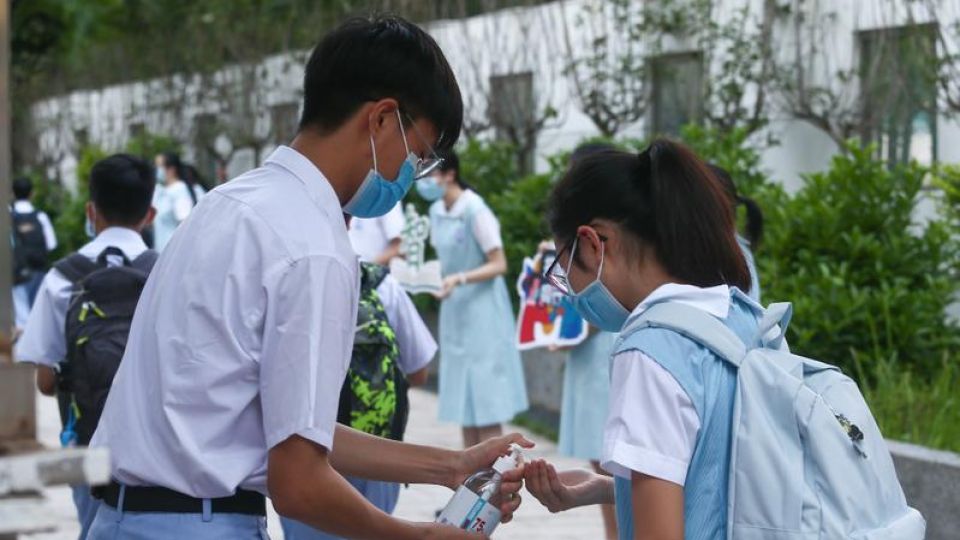March 18, 2022
HONG KONG – Parent-child relations in many Hong Kong families have been strained amid the city’s worst-ever COVID-19 outbreak, with increasing disputes over e-learning and personal hygiene, according to an expert on youth development.
Leung Suk-yu, executive director of the Family and Youth Development Wellness Centre, said her organization had received 32 parent-child mediation cases so far this year – up 30 percent over the same period in 2021.
Leung Suk-yu, executive director of the Family and Youth Development Wellness Centre, said her organization had received 32 parent-child mediation cases so far this year – up 30 percent over the same period in 2021
Disputes over children’s learning account for about one-third of all the cases, she said. The Hong Kong government has halted face-to-face classes several times since 2020 to curb the pandemic. The most recent suspensions occurred in early January as the fifth wave of COVID-19 struck.
In many cases, children found it challenging to concentrate in online classes. Online learning also increases the possibility of screen addiction as it requires students to spend more time on their computers or mobile phones. All these changes might have affected their academic performance and led to disputes with their parents, said Leung.
The divergence to personal hygiene is another factor that sparks such disputes. In some cases, the kids didn’t treat the pandemic seriously and were blamed for not wearing masks or frequently touching objects without wearing gloves. Children may also feel that everything outside is dangerous and refuse to go out, and this is also a kind of unhealthy mentality in their parents’ minds, Leung said.
Besides mental stress, poor parent-child communication may also lead to more severe consequences. In April last year, the Hong Kong Family Mediation Association interviewed more than 600 pupils and their parents in a survey. It showed that due to a strained parent-child relationships, nearly 70 percent of the parents and 57 percent of the students had thought of hurting themselves or attacking others, and more than half of the students polled did just that.
Leung said that due to the heavy pressure created by the public health crisis, mutual understanding and love are the best medicine for improving parent-child relationships and promoting family harmony.
She urged parents and their children to engage in heart-to-heart talks with an open mind. “The key is to put themselves in others’ shoes,” said Leung. She urged them to do what they can to show their love to other family members. If both parties can feel they’re being loved, many problems could be solved.
According to Leung, the number of divorce mediation cases and related consultations on child support has also risen during the pandemic.
She noted that family relationships may face additional challenges as many Hong Kong students have started their summer holidays early this year. Parents and schools are still communicating on how to enable students to go through the period smoothly, she said.


